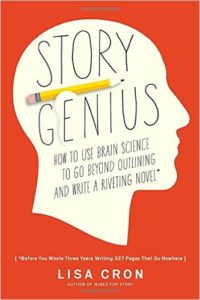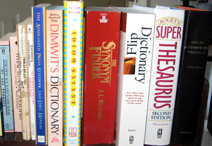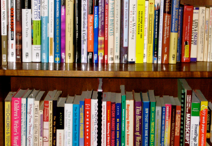Here are several books that have helped me hone the craft of writing.
➺Story Genius, by Lisa Cron. “In Story Genius Cron takes you, step-by-step, through the creation of a novel from the first  glimmer of an idea, to a complete multilayered blueprint—including fully realized scenes—that evolves into a first draft with the authority, richness, and command of a riveting sixth or seventh draft.” This one is a current favorite!
glimmer of an idea, to a complete multilayered blueprint—including fully realized scenes—that evolves into a first draft with the authority, richness, and command of a riveting sixth or seventh draft.” This one is a current favorite!
➺ The Moral Premise, by Stanley D. Williams, Ph.D. Subtitled “Harnessing Virtue & Vice for Box Office Success,” this book describes how to strengthen both screenplays and novels by centering every aspect of the story on a statement of truth about the hero’s physical and psychological struggles. More than theme alone, the moral premise encompasses the good that comes from living out the central truth as well as the consequences when the characters ignore it. A must-read for every novelist!
➺ Techniques of the Selling Writer, by Dwight Swain. The best book on the art and craft of writing fiction that I have ever come across. Swain’s instruction on scene and sequel is essential for successful fiction.
➺ Goal, Motivation & C onflict, by Debra Dixon. Available exclusively through Gryphon Books. An excellent tutorial on how to strengthen your fiction with the three basics of plotting and characterization. Simple, straightforward instruction. Helpful examples from well-known novels and films. An absolute must, whether you’re a seasoned writer or just beginning.
onflict, by Debra Dixon. Available exclusively through Gryphon Books. An excellent tutorial on how to strengthen your fiction with the three basics of plotting and characterization. Simple, straightforward instruction. Helpful examples from well-known novels and films. An absolute must, whether you’re a seasoned writer or just beginning.
➺ The 38 Most Common Fiction Writing Mistakes, by Jack M. Bickham. An excellent checklist to make sure your fiction stands out. Covers all aspects from start to completion, including procrastination, writing goals, description, dialogue, characterization, motivation, research, self-editing, persistence. BTW, Bickham was Dwight Swain’s protégé.
➺ Writing & Selling the Christian Novel, by Penelope J. Stokes. An extremely helpful text that teaches you just what the title says! Stokes holds a Ph.D. in Renaissance literature and worked as a college professor of literature and writing for 12 years. Since 1986 she has been a free-lance writer and editor, and is a popular speaker at Christian writer’s conferences. The book addresses such topics as why we write, where God enters in (both in the process and in the product), various genres of Christian fiction, the basics of good storytelling, and what to do with your book once you’ve completed it. This book is a must for anyone desiring to write successful Christian fiction.
➺ Getting Into Character, by Brandilyn Collins. The Queen of Christian Suspense offers a unique way of deepening your story characters using method acting theory. A book on characterization and much more.
➺ Word Painting, by Rebecca McClanahan. This guide to w riting more descriptively will help you add vibrancy and depth to your writing. Learn how to use all five senses to their greatest effect. McClanahan will show you how to describe with “clarity, accuracy and, above all, imagination.” Lots of illustrative examples.
riting more descriptively will help you add vibrancy and depth to your writing. Learn how to use all five senses to their greatest effect. McClanahan will show you how to describe with “clarity, accuracy and, above all, imagination.” Lots of illustrative examples.
➺ Self-Editing for Fiction Writers, by Renni Browne and Dave King. The ultimate step-by-step guide to polishing your prose, this book covers point of view, dialogue, interior monologue, characterization, description, and much more.
➺ Revision, by David Michael Kaplan. (Limited availability.) The key concept here is re-vision. Seeing your book with fresh eyes. Kaplan taught a weekend workshop I attended at the 2002 Iowa Summer Writers Festival, and this book describes some interesting revision methods definitely worth trying.
➺ Networking at Writer’s Conferences, by Steven D. Spratt and Lee G. Spratt. Some great advice in these pages for how to get the most out of every writer’s workshop and conference you attend. Topics include deciding just why you’re attending a particular conference, how to prepare ahead of time, evaluating your present writing capabilities, setting goals for the conference, what to take with you, how to network, making the most of personal consultations, and what to do with everything you’ve learned and collected once the conference is over. There are even helpful suggestions for those of you (like me!) who are “conversationally impaired” and haven’t the foggiest idea what to say to an editor!
